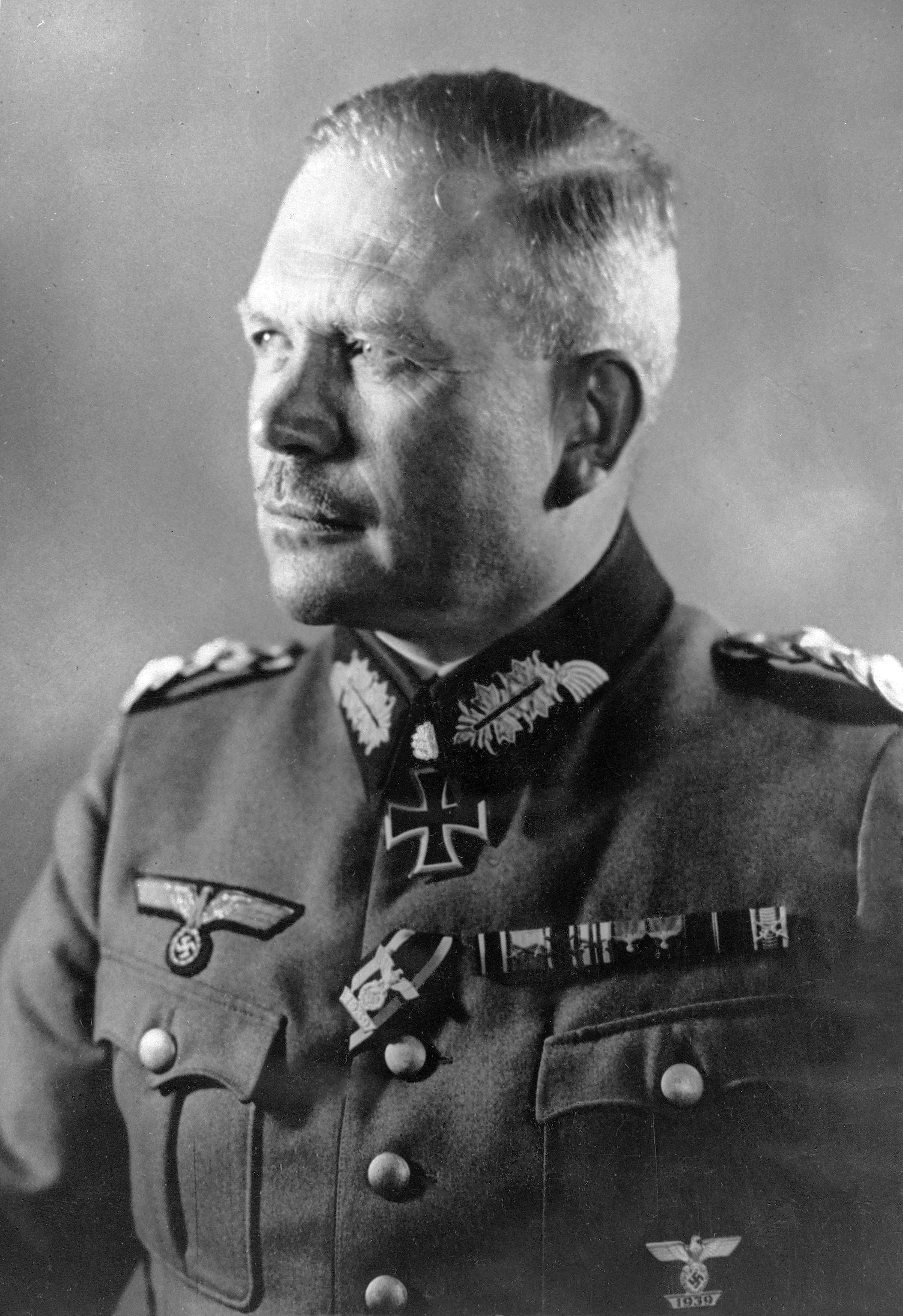Heinz Guderian
 Heinz Wilhelm Guderian (; 17 June 1888 – 14 May 1954) was a German general during World War II, and who became a successful memoirist. A pioneer and advocate of the "blitzkrieg" approach, he played a central role in the development of the panzer division concept.
Heinz Wilhelm Guderian (; 17 June 1888 – 14 May 1954) was a German general during World War II, and who became a successful memoirist. A pioneer and advocate of the "blitzkrieg" approach, he played a central role in the development of the panzer division concept. After serving in the military since leaving school, including in World War I, in 1936, he became the Inspector of Motorized Troops. At the beginning of World War II, Guderian led an armoured corps in the Invasion of Poland. During the Invasion of France, he commanded the armoured units that attacked through the Ardennes forest and overwhelmed the Allied defenses at the Battle of Sedan. He led the 2nd Panzer Army during Operation Barbarossa, the invasion of the Soviet Union. The campaign ended in failure after the German offensive Operation Typhoon failed to capture Moscow, and after a disagreement with Hitler, Guderian was dismissed.
In early 1943, Adolf Hitler appointed Guderian to the newly created position of Inspector General of Armoured Troops. In this role, he had broad responsibility to rebuild and train new panzer forces but saw limited success due to Germany's worsening war economy. Guderian was appointed Acting Chief of the General Staff of the Army High Command, immediately following the 20 July Plot to assassinate Hitler. Guderian was appointed as a member of the "Court of Honour" by Hitler, which in the aftermath of the plot was used to dismiss people from the military so they could be tried in the "People's Court" and executed. He was Hitler's personal advisor on the Eastern Front and became closely associated with the Nazis. Guderian's troops carried out the criminal Commissar Order during Barbarossa, and he was implicated in the commission of reprisals after the Warsaw Uprising of 1944.
Guderian surrendered to US forces on 10 May 1945 and was interned until 1948. He was released without being charged and retired to write his memoirs. Entitled "''Memoirs of a Soldier"'', the autobiography was published in 1950 and became a bestseller. Guderian's writings received backlash in the decades since their release, with historians finding the original works to contain post-war myths, including that of the "clean Wehrmacht". Guderian portrayed himself as the sole originator of the panzer force and refused the stipulation that units under his command committed crimes of war. These criticisms were partially addressed in his 1952 re-release edition of the book, newly entitled ''Panzer Leader'', which mended some historic inaccuracies and introduced a foreword from B. H. Liddell Hart. Guderian died in 1954 and was buried in Goslar. Provided by Wikipedia




